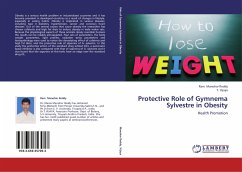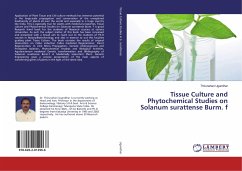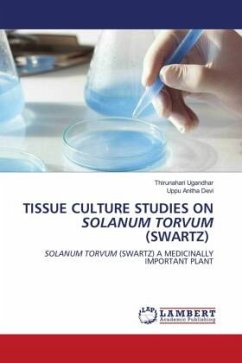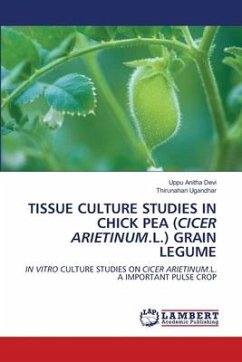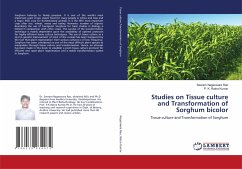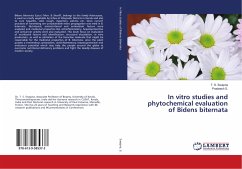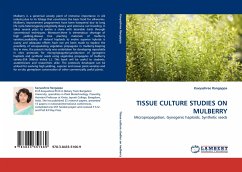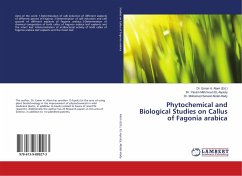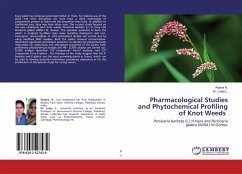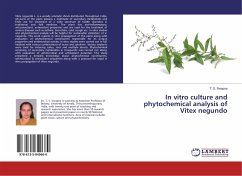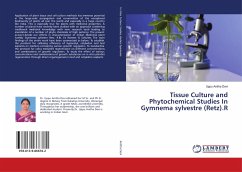
Tissue Culture and Phytochemical Studies In Gymnema sylvestre (Retz).R
Versandkostenfrei!
Versandfertig in 6-10 Tagen
51,99 €
inkl. MwSt.

PAYBACK Punkte
26 °P sammeln!
Application of plant tissue and cell culture methods has immense potential in the large-scale propagation and conservation of the unexplored biodiversity of plants all over the world and especially in a huge country like India. This is especially true for plants with medicinal properties. A number of plants have recently been studied with an approach combining traditional medicinal knowledge with new research tools leading to elucidation of a number of phyto chemicals of high potency. The present project details our efforts in characterization of Indian Medicinal plant namely Gymnema sylvestre...
Application of plant tissue and cell culture methods has immense potential in the large-scale propagation and conservation of the unexplored biodiversity of plants all over the world and especially in a huge country like India. This is especially true for plants with medicinal properties. A number of plants have recently been studied with an approach combining traditional medicinal knowledge with new research tools leading to elucidation of a number of phyto chemicals of high potency. The present project details our efforts in characterization of Indian Medicinal plant namely Gymnema sylvestre Retz. R.Br. Ex Roemer & Schultes. The main findings of the entire work have been summarized as below: To establish the protocol for callusing efficiency of hypocotyl, cotyledon and leaf explants on medium containing various growth regulators. To standardize the protocol for callus mediated regeneration on different concentrations and combinations of growth regulators. To study the effect ofvarious concentrations and combinations of growth substances on in vitro plantlet regeneration through direct organogenesis in leaf and cotyledon explants.



